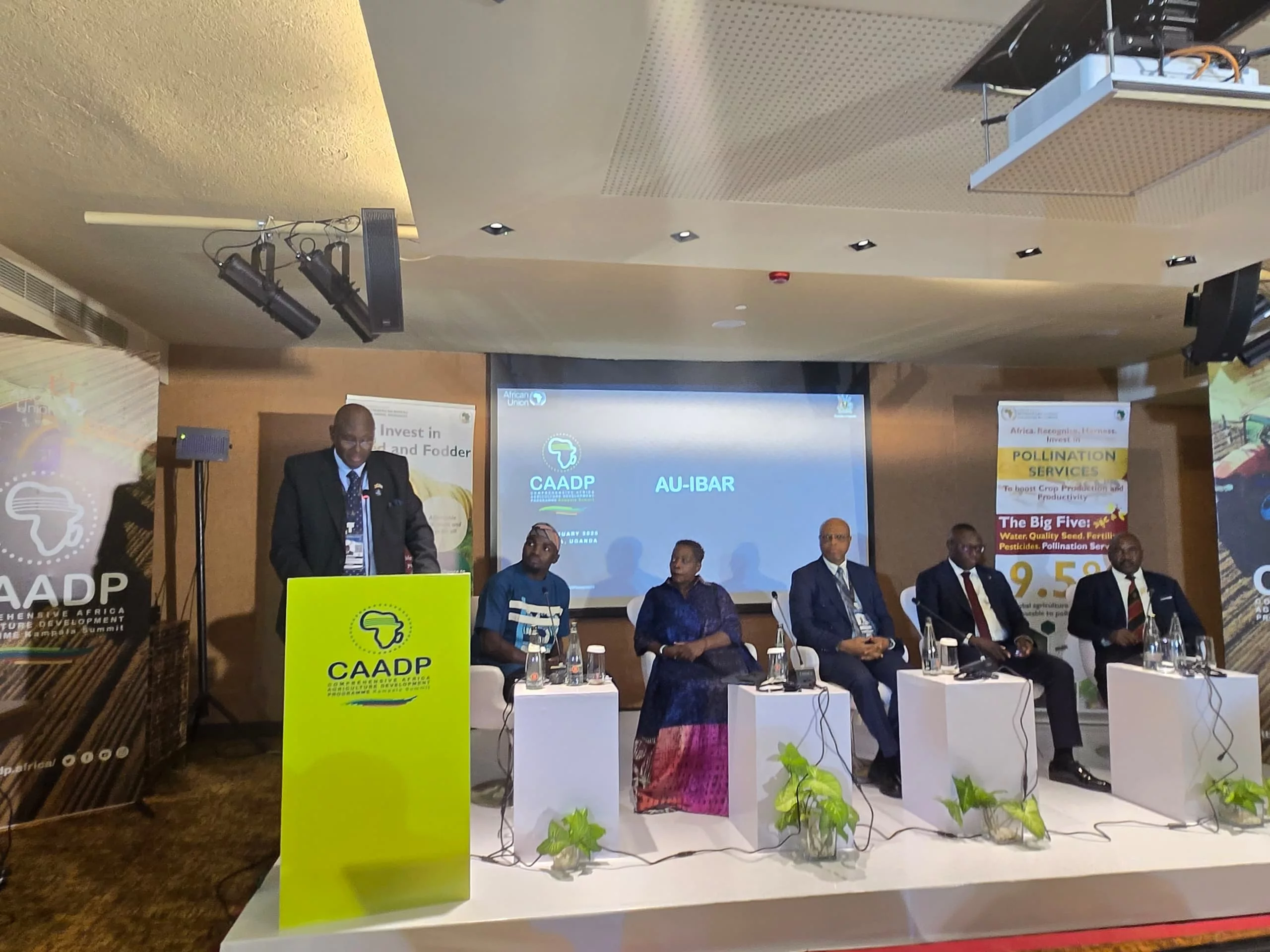|
Getting your Trinity Audio player ready...
|
KAMPALA, UGANDA – Dr. Bright Rwamirama, Uganda’s Minister of State for Agriculture, Animal Industry and Fisheries has underscored the importance of animal protein in food and nutrition security.
He was speaking during a Livestock Side event at the Margins of the African Union Heads of States Extraordinary Summit on the Comprehensive Africa Agriculture Development Programme (CAADP) 10-year Strategy and Action Plan in Kampala, Uganda on 10 January 2025.
“When you talk of food and nutritional security, people rush on grain and cereals. But you cannot talk of nutritional security without animal protein. We are talking about the importance of animal resources in food and nutritional security and the agenda for the Africa we want in 2063. We are being more approached by disease control and I am very pleased that recently we are now looking at production and productivity,” Dr. Rwamirama said.
In her opening statement at the same event, Dr. Huyam Salih, the Director of the African Union Inter-African Bureau for Animal Resources (AU-IBAR) on the Critical Role of Livestock in Africa’s Sustainable and Resilient Agri-Food Systems, underscored the indispensable contributions of the livestock sector to our communities, ecosystems, and the African socio-economic fabric.
“At the same time, we stand at the crossroads of challenges and opportunities that animal resources offer. We are very aware that the true potential of animal resources remains untapped due to critical challenges such as Animal Health Risks; Feed and Fodder Deficits; Market and Trade Barriers; Climate Change and other shock Impacts and Fragmented animal resources value chains,” Dr. Salih said.
She said Livestock agriculture significantly contributes to the livelihoods of millions of people in Africa, providing over 30% of the continent’s agricultural GDP. For many rural households, livestock serves as a vital source of income, nutritional security, and social stability. The sector supports a diverse economy by creating jobs along the entire value chain—from production and processing to marketing and distribution.
Moreover, by investing in sustainable livestock production, we are not only boosting local economies but also fostering entrepreneurship, particularly among our youth and women, who must be empowered as key drivers in agricultural innovation and development.
Animal-derived products such as meat, milk, and eggs are essential sources of proteins, vitamins, and minerals that are critical for human health. In a continent where malnutrition with associated challenges of stunting and underweight in children remains a major public health challenge, livestock is complementing other staple foods and enhancing dietary diversity, particularly for vulnerable groups including children and nursing mothers.
She said as climate change escalates, livestock systems must adapt and build resilience to withstand shocks. This requires investing in climate-smart technologies, improving breeds for disease resistance and adaptability, and promoting sustainable feed practices.
Enhancing livestock systems is not just about productivity but also about resilience ensuring that these systems can thrive in the face of changing climatic conditions and associated shocks.






